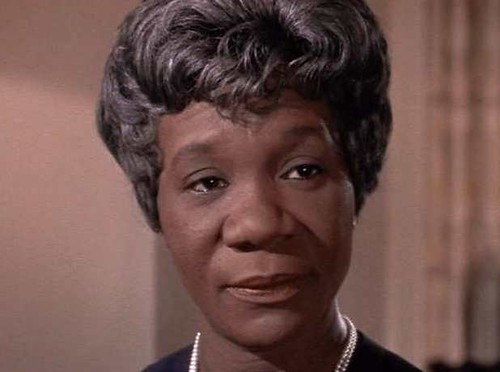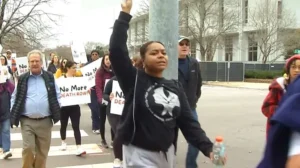“Who?”
That is probably the first word that comes to mind for upwards of 90% of Americans reading this headline. A select few who are of a certain age might recall Beah Richards’ Oscar-winning Best Supporting Actress role as Mrs. Prentice, the mother of Sidney Poitier’s character in the 1967 blockbuster movie “Guess Who’s Coming to Dinner.”
However, in ways that might never have made hers a “household name,” the extraordinarily talented child who was born Beulah Elizabeth Richardson 100 years ago this year on July 12, 1920, in Vicksburg, Mississippi, would grow to become not only an acclaimed actress of screen, stage, and television, with nearly a dozen significant Hollywood movies to her credit, but also an important playwright, poet, author, and a boldly inspiring, fondly remembered mentor to younger artists.
However, in what might be called her greatest role of all, Ms. Richards, much like her own mentor and friend the legendary Paul Robeson, did not allow stardom and show business to deter from her more compelling commitment to being a fearless and tireless, dedicated and outspoken activist for social justice and equal rights for peoples of color worldwide, and for women and workers in general.
It was in this role that she closely followed the nationally sensational case of Willie McGee, a Black man in Mississippi accused of raping a White woman with whom he apparently had a consensual relationship, for which he had gone through two mistrials and was going before a third jury in 1951. Ms. Richards, reflecting on the whole history of the South where she was born and raised and which she knew only too well, penned a brilliantly insightful poem entitled “A Black Woman Speaks, of White Womanhood, of White Supremacy, and Peace,” reproduced below, which might be considered a lasting emblem of her lifelong creative genius, sincerity and courage.
Space here does not allow for the full exploration of her many achievements that they deserve, but readers are strongly encouraged to research and be inspired by her remarkable life, one of so many that have mattered so deeply to the making of this country without the recognition that is due.
The centennial of Ms. Richards’ birth on July 12 is a most appropriate occasion to give her memory that overdue recognition, perhaps with some gesture of remembrance in our homes, or mention of her name in our places of worship on that Sunday, but certainly by recognizing how acutely timely and relevant her poem is to the present time, as the attention of the world is focused on Black America’s dual plight of suffering a grossly disproportionate death rate from both the COVID-19 pandemic, and from a rash of incidents of unwarranted police brutality, as protesters and observers around the world denounce the blatantly racist Trump administration in aiding and abetting these outcomes.
The poem becomes even more timely today as a presidential election approaches and we are reminded, of the astonishing 2016 “election” of Donald Trump, in spite of having actually lost by some 3 million popular votes, due to the American technicality of the Electoral College, and the startling role of the 53% of White women who voted for a self-avowed misogynist and racist, and against the nation’s possible first female president (compared to 94% of Black women voting for Hillary Clinton).
In the wake of #MeToo, impeachment, COVID-19, and other developments in thus Year of Awakening, the world will be watching America’s White Womanhood even more closely than Ms. Richards did in 1951.
On the brighter side her legacy, we must recognize LisaGay Hamilton’s brilliant 90-minute 2006 HBO biographical documentary “Beah: A Black Woman Speaks” (taking its title from the poem), a recent screening of which inspired a group of viewers to launch a nationwide effort to commemorate Ms. Richards, between July 12 and September 14, the 20th anniversary of her death at age 80 in 2000, with articles, programs, film showings and virtual activities at both grassroots and official levels, that will bring to light her many contributions and those of people whom she inspired.
What better way to begin our next 400 years of history in these lands than by celebrating and elevating the memory of those whom the last 400 years of history so routinely excluded, ignored, misrepresented, and denied.




